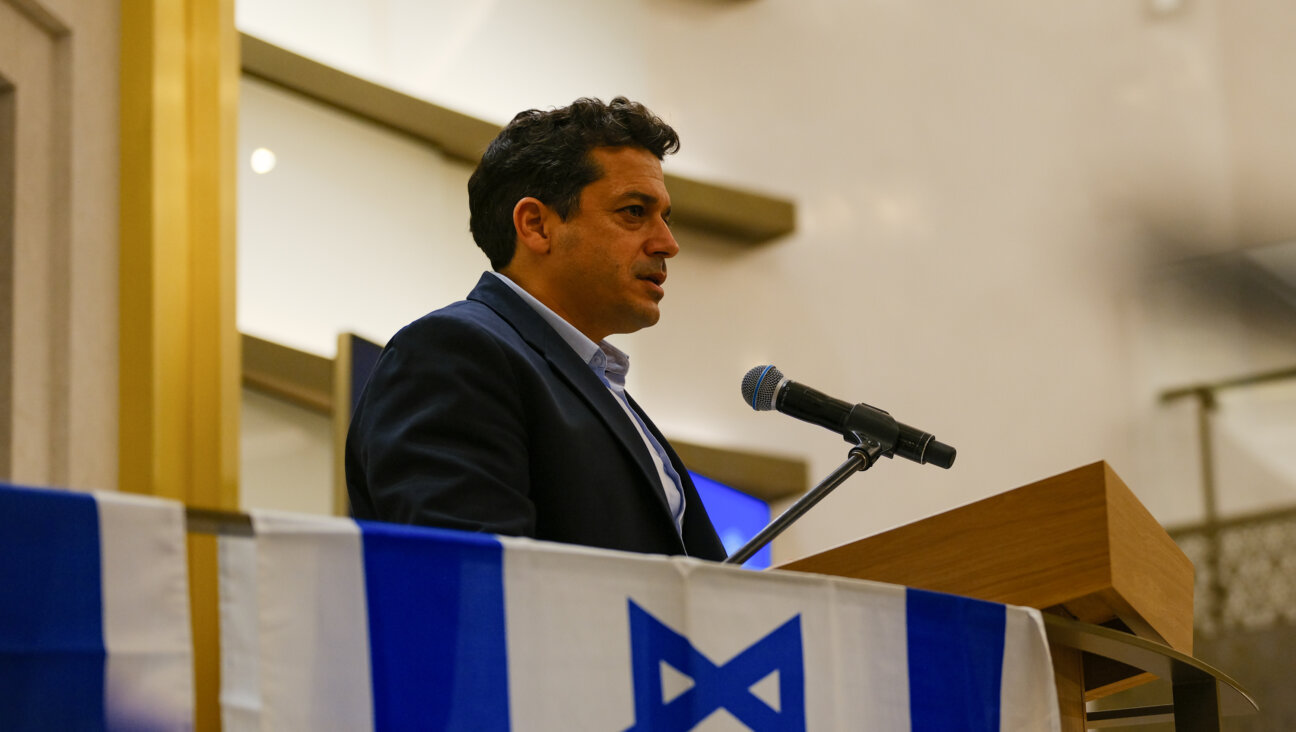How Trump is banning DEI at universities — except for Jews
The Trump administration’s ban on DEI at universities has one big exception: Jewish students get special support.
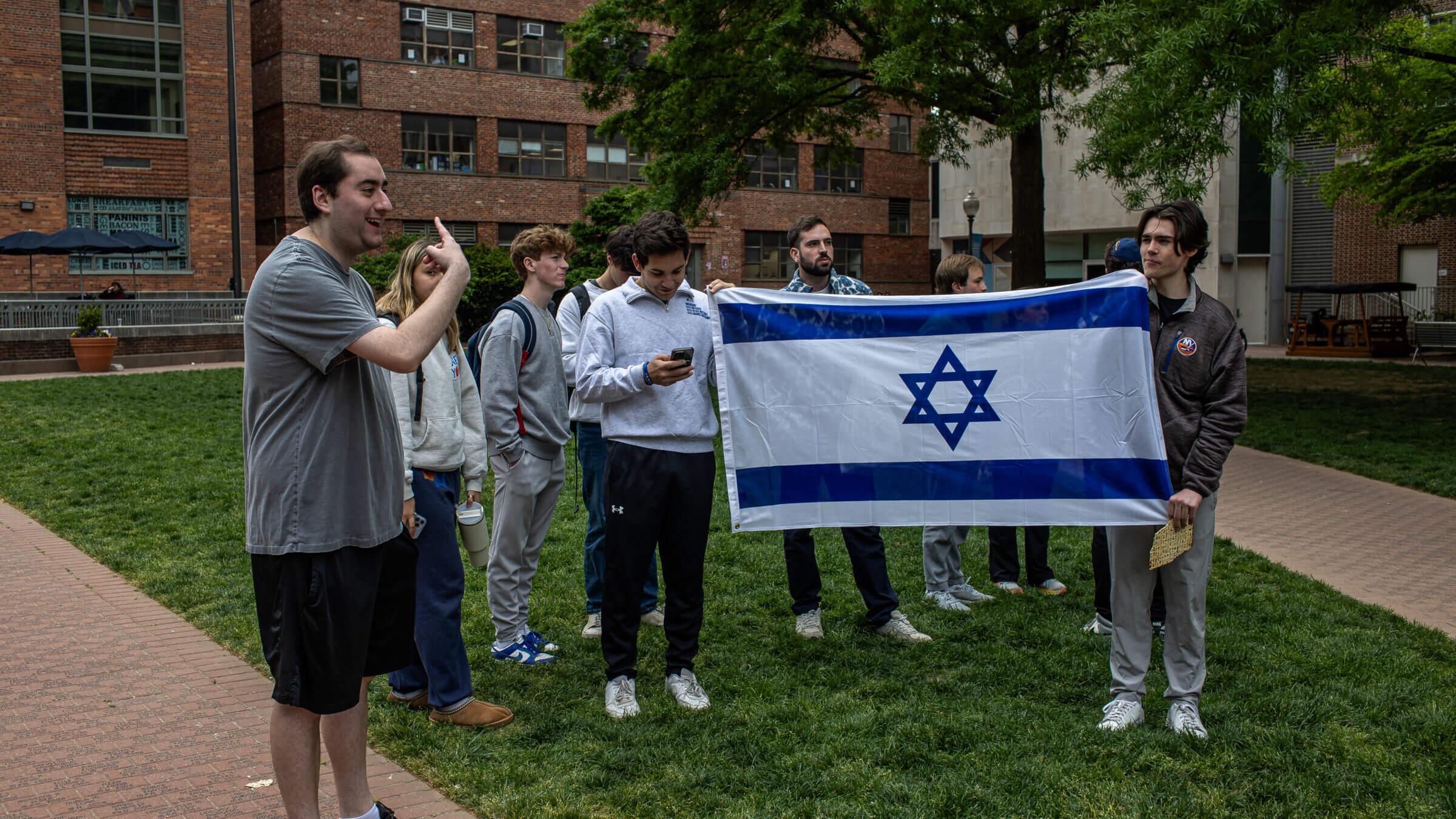
Students protest an pro-Palestinian encampment George Washington University on April 25, 2024. Photo by Photo by Amid Farahi/Middle East Images/AFP via Getty Images
The Department of Justice declared it illegal last week for universities receiving federal funds to give “preferential treatment” to members of any protected class, including funding “safe spaces” like study spaces or dorms for specific groups or recruiting minorities by targeting institutions that they are likely to attend.
The notice was the most forceful in a series of policy announcements from the Trump administration meant to eliminate diversity programs on college campuses. Several schools around the country scrambled to comply with a similar directive from the Education Department earlier this year, with the University of Iowa eliminating student housing based on identity and common interests and Ohio State University overhauling a scholarship for students engaged in “diversity-based leadership.”
But the day after it released the sweeping memo, Attorney General Pam Bondi signed a legal settlement with Brown University requiring the school to conduct “outreach to Jewish day school students” and pay for “enhanced security” at the campus Hillel building, which seemed to violate her department’s new guidance.
“There will be no more antisemitism,” a jubilant President Donald Trump posted on social media. “Woke is officially dead at Brown.”

The apparent contradiction is only the latest example of how the Trump administration has sought to ban diversity measures meant to benefit minority groups, while in several cases requiring universities to create new policies to benefit Jews, which several legal experts told the Forward could violate the Constitution’s equal protection clause.
“They’re complete hypocrites,” Jenin Younes, a civil liberties attorney, said in an interview. “It’s not legal.”
According to an analysis by Education Week, the Trump administration has launched more than 65 civil rights investigations focused on allegations that a school engaged in “race-based programming” — invoking a law that includes Jews as a “race, color or national origin” — while the settlements with both Brown and Columbia mandated that those institutions create special programs for Jewish students.
Brown also committed as part of the agreement to hosting a party to celebrate “130 years of Jewish life at Brown,” despite a provision in the Justice Department guidance memo that specifically bans any “resource allocation” with an “identity-based focus,” even if the money is spent on a campus space or programming that is technically open to all.
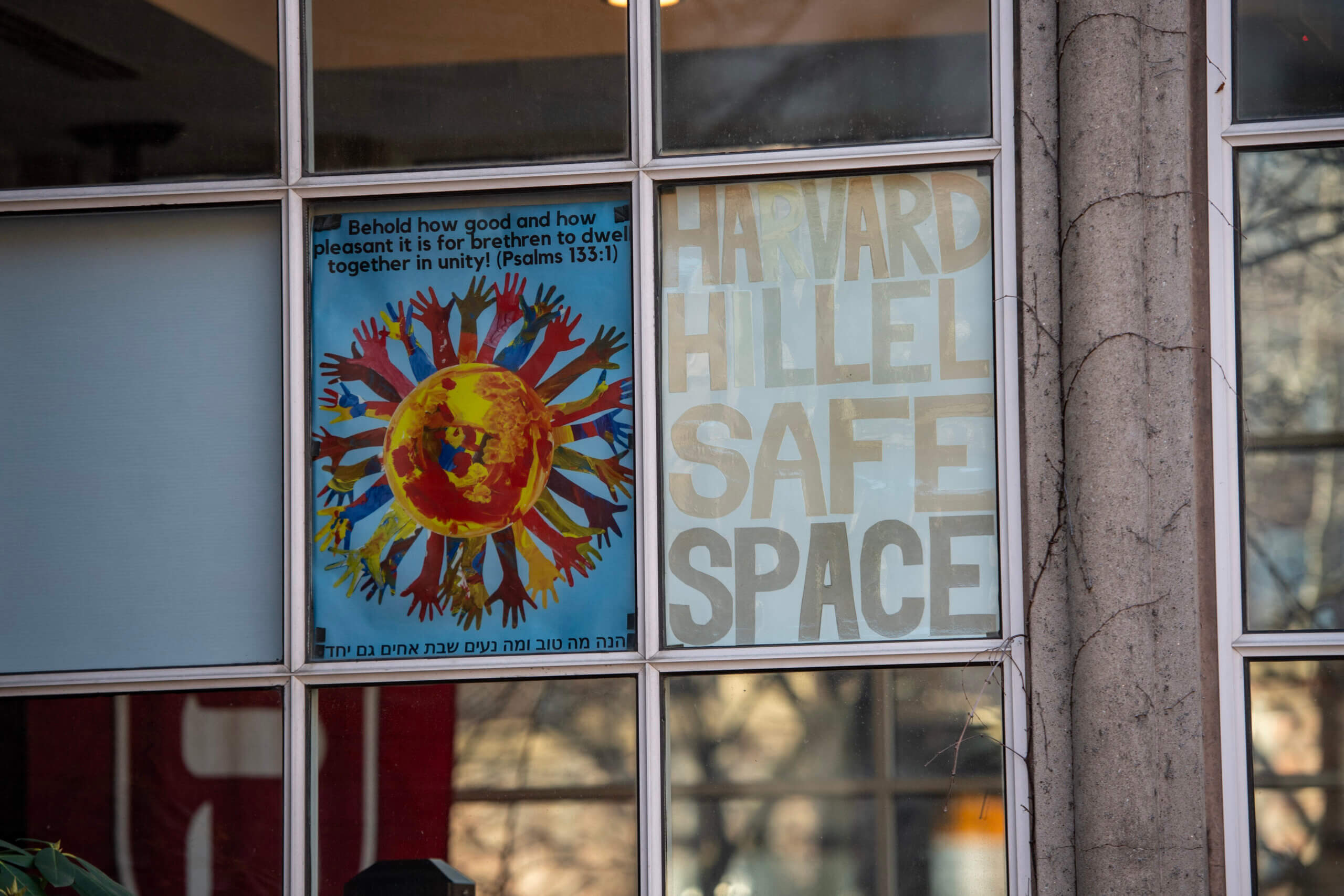
The Columbia agreement requires the school to hire a student liaison to “support Jewish students,” even as the following paragraph in the settlement bans the school from providing “benefits or advantages to individuals on the basis of protected characteristics,” which includes being Jewish.
Kenneth Marcus, who ran the Education Department’s civil rights division during the first Trump administration, said that courts sometimes allowed schools to treat certain groups of students differently in order to fix previous discrimination. “It may be that the universities are simply being required to extend to Jewish applicants and Jewish students the same sorts of accommodations given to others,” Marcus said.
He said Brown and Columbia likely did not need to worry about violating the Justice Department’s general guidance since they had negotiated specific settlements with the government, but acknowledged that it was a “real question” whether the Justice Department’s memo could prohibit other schools from proactively offering support intended to help Jewish students.
The Justice Department declined to make anyone involved in drafting the memo available for an interview, or to explain why schools like Brown and Columbia were allowed to offer special benefits to Jewish students despite the document’s ban on “race-based” policies.
“No comment,” spokesperson Natalie Baldassarre wrote in an email Friday.
***
Many Jewish leaders concerned about campus antisemitism have grappled with whether university diversity programs are a tool to help Jewish students or part of the problem.
“At times there’s been a lack of coherence in the organized Jewish community,” said David Bernstein, director of the North American Values Institute and author of Woke Antisemitism. “Too many want DEI-style protections for Jewish students rather than fixing the underlying structural problems.”
The Trump administration seems to see no contradiction between countering what it has called “illegal DEI” and protecting Jewish students, arguing that it is precisely the “woke” policies meant to help other minority groups that are fueling hostility toward Jews.
“I would imagine it’s very hard as a school to make sense of it all.”Beth Gellman-BeerFormer regional director of the Department of Education's Office for Civil Rights in Philadelphia
The Joint Task Force to Combat Anti-Semitism has focused much of its energy on dismantling DEI programs because, an anonymous White House official told The Washington Post, it believes antisemitism is only one “symptom” of the problems caused by liberal campus policies that labeled Jews and white students as oppressors.
“I hate antisemitism!” Leo Terrell, the task force’s director, wrote on social media shortly before he was named to the role. “I hate DEI! I hate Critical Race Theory!”
That attitude has been reflected in the antisemitism settlements, which mix provisions intended to help Jewish students with ones eliminating diversity and affirmative action programs, and limiting accommodations for trans women, another Trump administration priority.
But the Justice Department’s legal guidance memo, which was signed by Bondi, does not mention any exceptions for Jewish students that would match the accommodations in the Brown agreement.
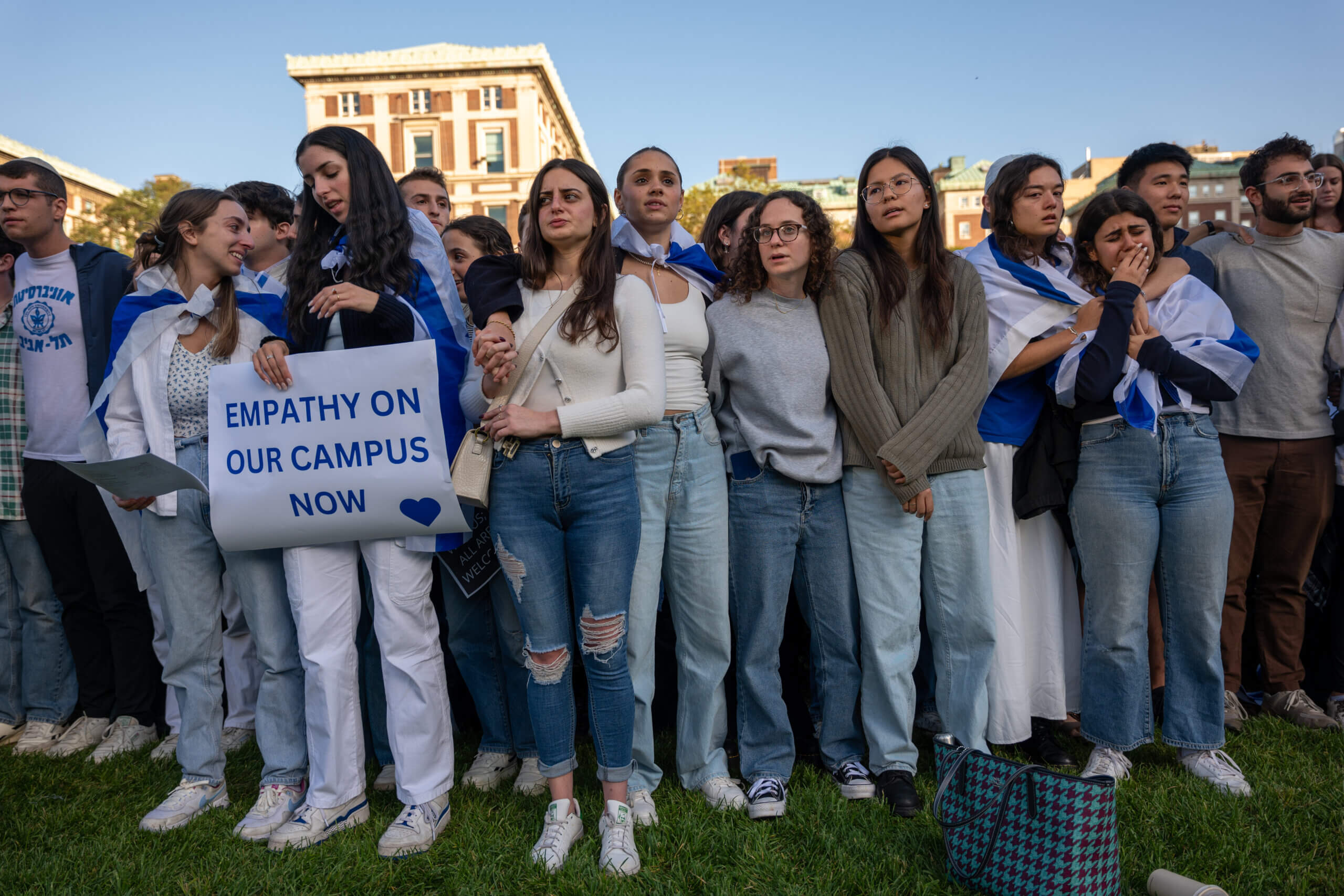
“I really can’t understand the contradiction,” said Beth Gellman-Beer, who was regional director of the Education Department’s Office for Civil Rights in Philadelphia until March. “I’ve never had an experience where I was working at OCR and we made an exception to the law.”
Gellman-Beer said there were other strange aspects to the Trump administration’s antisemitism settlements, including that they appear to hold different schools to different legal standards.
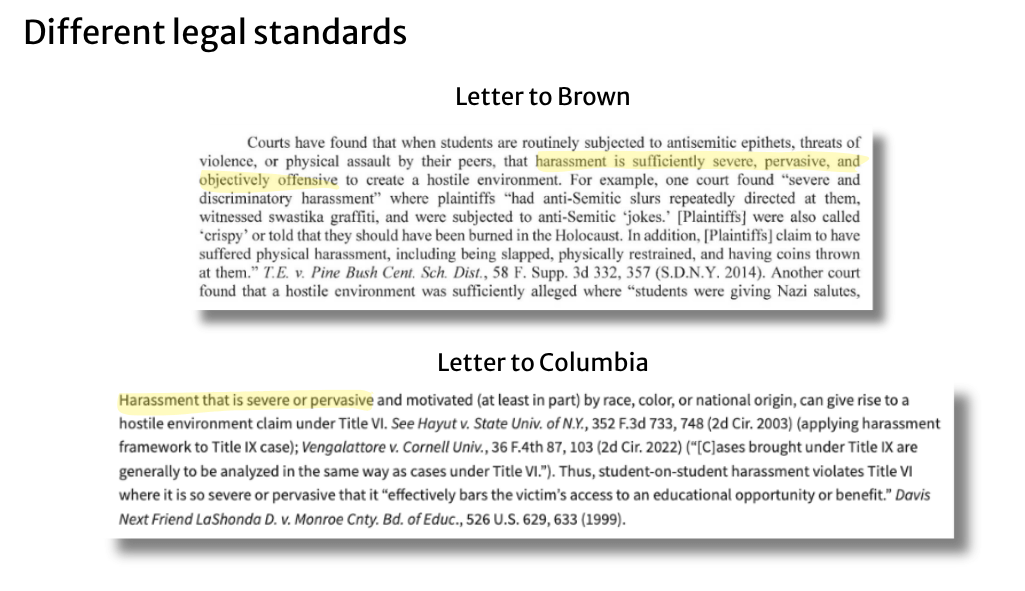
The enforcement letters informed Columbia and Harvard that they must prevent any antisemitic conduct that is either pervasive or severe. In contrast, Brown was told that it only had to address a more narrow set of conduct: that which was both severe and pervasive at the same time.
“I would imagine it’s very hard as a school to make sense of it all,” Gellman-Beer said. “I would be terrified.”
***
Many of the civil rights laws governing universities that receive federal funding are vague, so schools often rely on guidance like the new Department of Justice memo to understand how to comply with them, even though that guidance does not technically have the power of law.
Several legal scholars have expressed skepticism that Bondi’s guidance about DEI is an accurate interpretation of the law. In theory, if the guidance is incorrect then schools interested in countering antisemitism could follow Brown’s lead, for example, in providing funding for Hillel, even if doing so appears to violate the Justice Department memo.
But as a practical matter most schools simply seek to comply with federal memos, and Younes, the civil liberties attorney, said that if schools rely on both the memo and the antisemitism settlements as policy blueprints — canceling diversity programs except for those that help Jews — they could find themselves in legal trouble.
“If you’re saying none of this for Black students, none of this for Arab students, but yes for Jewish students, there’s a good claim there for if someone wanted to sue,” said Younes, a critic of previous government efforts to counter antisemitism.
The Trump administration is already losing a series of legal battles related to its crackdown on DEI, and Harvard is fighting the suspension of its federal grants in court.
Gellman-Beer said one of her main concerns is that the White House is addressing antisemitism in such a legally dubious manner that it may ultimately result in weaker protections for Jewish college students, including her own daughter.
“You’re now creating agreements that skirt the line of legality — that are inconsistent with each other — and that the next administration may reach back and nullify,” said Gellman-Beer, whose office oversaw the highest number of settlements related to campus antisemitism following Oct. 7. “Where does that leave Jewish students?”



